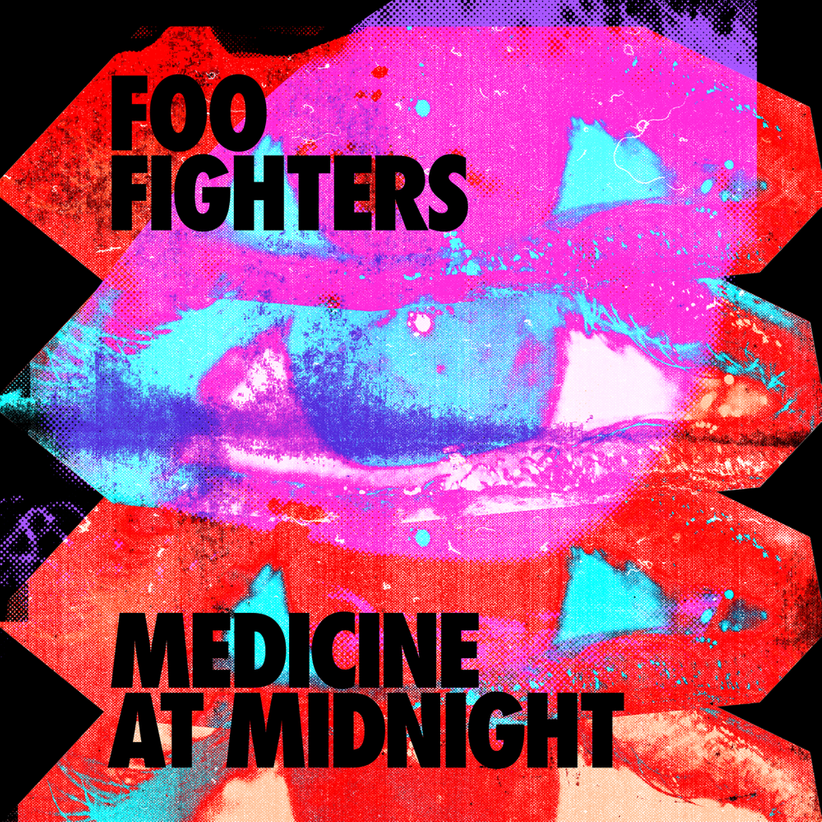Poor production and lazy songwriting abound on “Medicine at Midnight,” a weak entry in Foo Fighters’ discography that sees the band doing the bare minimum and nothing more.
“Medicine at Midnight” is the 10th Foo Fighters album, recorded between 2019 and 2020 but released on Feb. 5 of this year due to coronavirus-related delays. The record is the band’s shortest full-length at only 36 minutes and features their sloppiest, poppiest work in years.
The band’s low-effort, DIY approach to this album is markedly different from their usual output. Past albums such as “There Is Nothing Left To Lose” and “Echoes, Silence, Patience & Grace” featured careful, inventive and intricate compositions, while frontman Dave Grohl is on record as saying some of this most recent album’s songs took 45 minutes to write.
The album, pop producer Greg Kurstin’s second with the group, is poorly mixed, underwritten and a far cry from the material that made Foo Fighters one of the biggest rock acts in the world.
“Making a Fire” is an ambitious introduction that features shifting time signatures, a choral backing and traditional Foo Fighters song structure, but those elements don’t overcome the song’s poor mastering and saccharine appeals to emotion. The lyrics say and mean nothing, an unfortunately common theme on “Medicine at Midnight.”
The album’s first single “Shame Shame” wastes a lights-out drum riff on one of the most boring and tepid instrumentals Foo Fighters have ever released. The strings do little to distract from the cookie cutter lyrics and musicianship.
On “Cloudspotter,” which is technically one of the album’s highlights, the Foos get funkier than ever but deliver a track that isn’t half as cool as it thinks it is and doesn’t sound finished. The fiery bridge feels mailed-in, and the song’s abrupt end is an unacceptably amateur moment in the album’s mix.
“Waiting on a War,” while well-intentioned in its desire to relate Grohl’s Cold War fears to his daughter’s modern ones, is an embarrassing, uninspired, hackneyed and worst of all painfully boring retread of the band’s 2007 track “But, Honestly.”
The album’s title track sounds like a Talking Heads cover band improvising an on-the-spot cover of Steve Miller Band’s “Abracadabra.” Its laughably mixed and performed guitar solo and cheap drum loop intro make it sound out of place even on a tracklist as varied as this.
“No Son of Mine” sports a badass central riff and a high-power chorus, but its lyrics are too silly, and its bare verses too arid to take the song seriously.
“Holding Poison” carries water for the whole project. It’s confident, weird and throws it back to the harmonic, bouncy punk rock of “The Colour and the Shape” and the band’s self-titled debut. While the track wouldn’t crack the top 5 of a greater Foo Fighters release, it’s apparently what passes for inspired for the band nowadays.
“Chasing Birds” doesn’t earn its languid, dreamy vibe with any interesting musical or lyrical ideas. The four-minute song, which ends by building a compelling guitar lead into its tedious chord progression, only develops into something worthwhile with 40 seconds left in the song.
The last track, “Love Dies Young,” finally ends the album by giving into the worst tendencies of pop rock with the worst chorus Grohl has ever crooned paired with mismatched guitars that seem torn between aping The Ramones, Metallica and A Flock Of Seagulls. The song concludes with a messy collage of overcranked instrumental jambalaya that leaves behind no lasting taste beyond bitterness.
Rock fans are used to simple songwriting and low fidelity in their favorite bands’ records, but the lack of high quality material and a cohesive aesthetic sinks “Medicine at Midnight.”
Foo Fighters need to prove on their next album that they’re still interested in writing creative music that inspires, not offends. “Medicine at Midnight” is proof that for even the most talented artists, doing just enough just isn’t enough.




